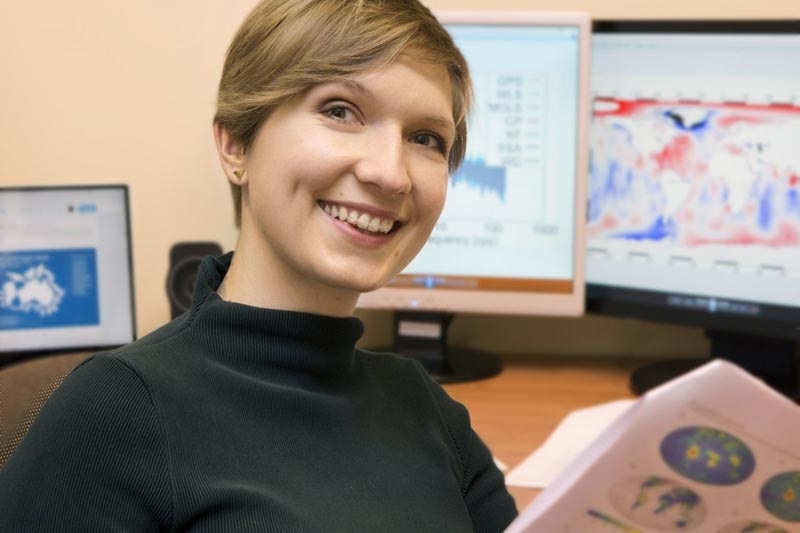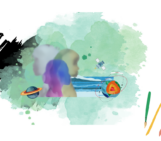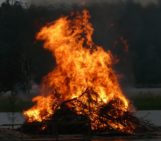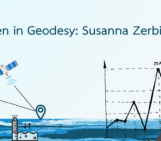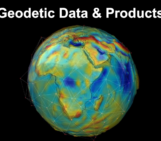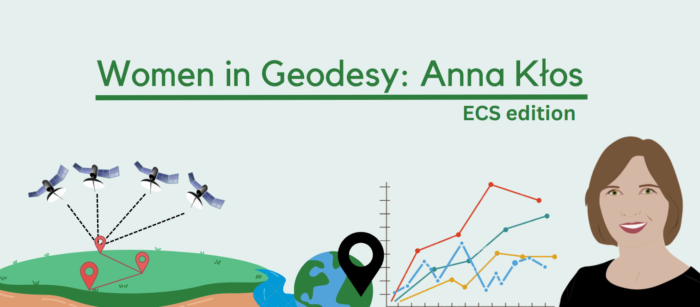
You guessed it right, it’s us again, the EGU Geodesy division ECS team! As you know, we have been working on a blog series called Women in Geodesy recently, and today we are turning our microphone to our current Science Officer and the Outstanding Early Career Scientist Awardee of 2021: Anna Kłos. We asked her a few questions and she was happy to answer them. Let’s leave the spot to Anna!
Would you like to share your thoughts about what being a woman in science means to you?
I never thought of myself as a woman in the sciences, but always as a scientist. I believe that a scientist should not be judged by gender, but by scientific curiosity, scientific reliability or credibility, and scientific excellence. Of course, the science carried out by each of us will be completely different, since it is influenced by many personal factors. Personally, I’m happy that I’m able to combine scientific work and having a family.
Was there an influential woman in your life who impacted you in a way to become a scientist? It can be a family member, someone outside of this family circle or a well-known scientist!
I can’t point to one person. Ever since I was a child I wanted to be a scientist, and the idea met with the approval of my family. Although at that stage I most dreamed of working in a laboratory. Probably along the lines of the Polish woman Maria Skłodowska-Curie, about whom I read a lot. Later I got a globe from my parents, and I remember how much I enjoyed inquiring about the processes that happen on Earth. This probably steered me in the direction of geodesy 🙂
You’re one of the Outstanding ECS awardees. We would like to hear a bit about your studies and what’s coming next.
I have devoted my research career to geodetic time series analysis. I am fascinated by how many parameters we are able to estimate from them and these can be further analyzed in terms of geodynamics. It is also amazing how consistent the different geodetic techniques are with each other. My current focus is on analyzing the sensitivity of the GNSS system to various environmental effects.
What message do you want to pass on to women and girls who want to pursue a career in science, more specifically in geodesy? Maybe a comment on how we can make science more accessible to young women and girls?
Be brave and self-confident. Don’t be afraid to make mistakes and pursue your own dreams.
We would like to thank Anna for the interview.
Next week, we will introduce you to one more female Vening Meinesz medalist …

